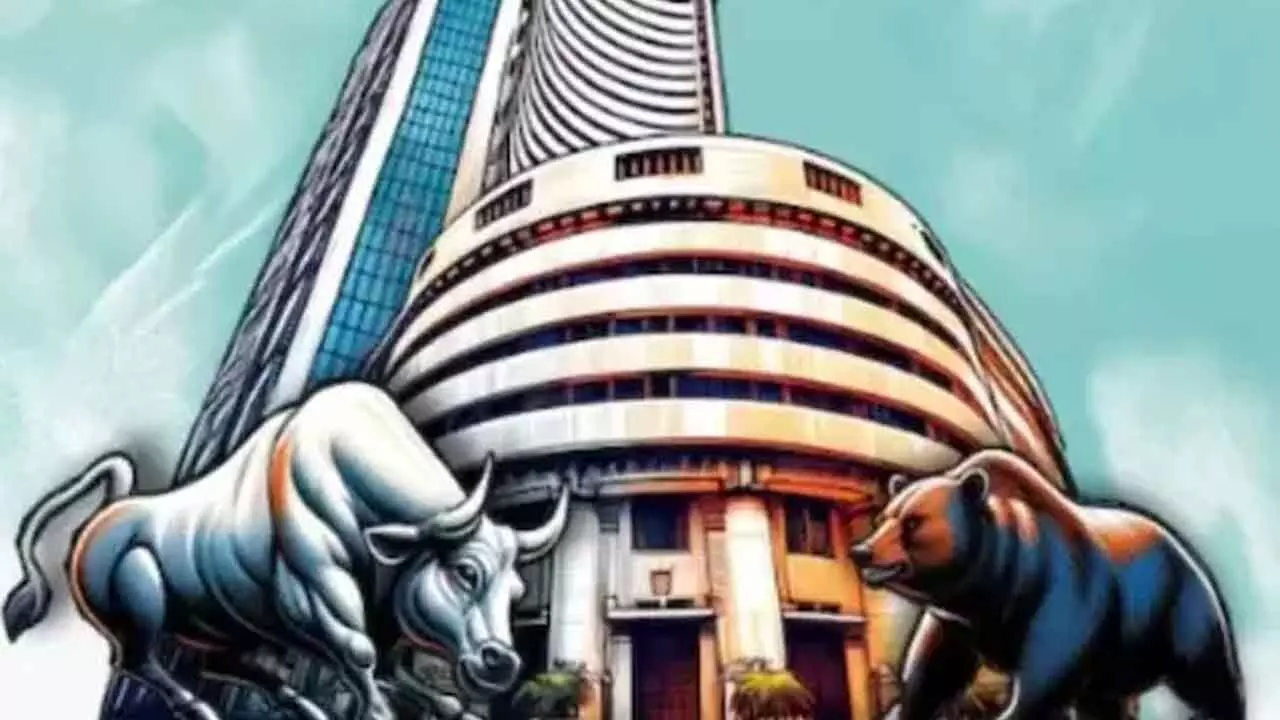Global Trade Tensions Trigger Jitters: Indian Markets Open Lower Amid Trump Tariff Threats
Indian stock markets, Sensex and Nifty, opened lower today as uncertainty surrounding US President Donald Trump's escalating tariff threats cast a shadow over global trade. Discover expert insights and market movements.
Global Trade Tensions Trigger Jitters: Indian Markets Open Lower Amid Trump Tariff Threats

Indian equity markets began Friday on a subdued note, with key indices Sensex and Nifty dipping into negative territory. The prevailing uncertainty stems from US President Donald Trump's continued aggressive stance on trade policies, as he ramps up threats of elevated tariffs across various sectors and countries, sending ripples through global financial markets.
As of 9:20 AM, the Sensex had shed 224 points, or 0.27%, to trade at 82,965, while the Nifty saw a decline of 65 points, or 0.26%, settling at 25,289.
Despite the broader market dip, a glimmer of buying interest was observed in the midcap and smallcap segments. The Nifty Midcap 100 index edged up by 60 points (0.10%) to reach 59,220, and the Nifty Smallcap 100 index posted a modest gain of 11 points (0.06%), closing at 18,967.
Market analysts are urging caution amidst the current climate of elevated volatility. Traders are advised to adopt a "wait and watch" strategy, particularly when it comes to leveraged positions. Experts recommend booking partial profits during market rallies and implementing stringent trailing stop-losses to mitigate potential risks.
Within the Sensex basket, several stocks managed to defy the downward trend, emerging as major gainers. These included HUL, Asian Paints, Axis Bank, NTPC, Power Grid, Tata Steel, SBI, Adani Ports, Sun Pharma, and ITC. Conversely, prominent losers included TCS, Infosys, M&M, Tech Mahindra, HCL Tech, Bharti Airtel, Bajaj Finserv, and Trent.
Sector-wise, a mixed picture emerged. PSU Bank, financial services, pharma, FMCG, and metal sectors showed resilience, trading in the green. However, auto, IT, realty, and media sectors experienced declines.
Across Asia, stock markets presented a varied performance. Japan's Nikkei 225 and South Korea's KOSPI traded relatively flat, indicating a hesitant mood. In contrast, China's Shanghai Composite and Hong Kong's Hang Seng indices demonstrated stronger performance, climbing over one percent.
Overnight in the US, Wall Street's major indices painted a more optimistic picture. The S&P 500 and the tech-heavy Nasdaq Composite both registered record closing highs. The Dow Jones Industrial Average advanced by 0.43%, while the S&P 500 gained 0.27%.
In terms of institutional activity, foreign institutional investors (FIIs) remained net buyers, acquiring equities worth Rs 221 crore on July 10. Domestic institutional investors (DIIs) also showed confidence in the market, purchasing equities worth Rs 591 crore on the same day.
The source of the current market anxiety can largely be attributed to escalating trade rhetoric from the US. President Trump recently announced a 35% tariff on Canadian imports, effective from August 1, coupled with warnings of even higher levies if Ottawa retaliates. More recently, he has threatened a substantial 50% tariff on Brazilian imports unless Brazil halts ongoing legal proceedings against former President Bolsonaro, further fueling global trade uncertainties.

